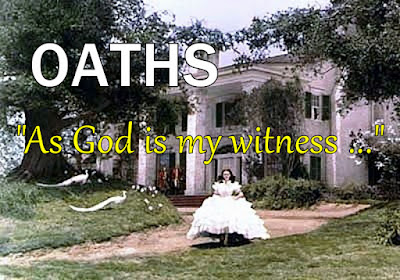THE RING OF BELIEF
I Corinthians 13:4-8
Arthur Bressi looked through the wire fence of a World War II Japanese concentration camp fence into the dull blue eyes of his friend, Skinner. He had heard through the prison grape vine that Skinner was in a hospital camp and was dying, and somehow managed to get permission for a five minute visit.
Since high school, they had been inseparable friends, and Arthur's heart grieved for him. Skinner, barely able to walk, was suffering from almost every tropical disease imaginable as well as scurvy. He could no longer eat or drink. He wasn't going to last long. He was a lost cause.
Arthur fingered the knotted handkerchief around his neck. In it was his most precious possession -- his high school class ring. Having smuggled it into the camp, he was holding onto it in case he himself ever needed to barter it for medicine or food. With time running out, Arthur slipped the ring through the fence into Skinner's frail hands with the parting words, "wheel and deal with it." (from A Love Worth Giving by Max Lucado)
After Jesus' triumphal arrival in Jerusalem, he grieved over the holy city. In Matthew 23:37-39, he laments, "Jerusalem! You who kill the prophets and stone those who were sent to you. How often I wanted to gather your people together, just as a hen gathers her chicks under her wings. But you didn't want that. Look, your house is left to you deserted. I tell you, you won't see me until you say, 'Blessings on the one who comes in the Lord's name.'" (CEV)
All of God's attempts to draw the people of Israel back to God had failed. They killed God's messengers and rejected Jesus. They turned their backs on God, and they would not recognize the Messiah until they could say with the conviction of their love and faith in God the words the crowd shouted to welcome Christ into the city. They were a lost cause.
So Jesus, looked at the palms of his hands, picked up his cross and gave up his life for them, for all humankind, and for us.
Skinner credits that ring with saving his life. With it, he was able to get medicine, limes for the scurvy, canned meat and even a new pair of pants. Yet, Arthur had given him more than a ring. He gave Skinner the encouragement he needed to live. His gesture told his friend, "I believe you will get well. I have the confident expectation that you will live."
Even though humanity seems to be a lost cause, Christ's journey to the cross is God's way of saying, "I believe you are worth dying for. I have the confident expectation of your salvation through Christ."
People believe who they are by what others think and say they are. Tell a person enough times that they are stupid, and they will believe they are stupid. Hurt us enough times, and we'll believe we are unlovable. Reject us enough times, and we'll believe we are unwanted. Abuse us enough times, and we'll believe we are unworthy.
Yet every one of God's actions says to us that we are loved, that we are wanted, and that we are worthy. We can choose to be defined by what others say about us, or we can accept the love of God through Jesus Christ and let that define who we are: loved, forgiven and saved.
In God's eyes, we are not lost causes. The love of God we experience through a personal relationship with Christ never fails, never gives up on us, even when we back slide. Each time we have an encounter with Christ, God's grace, God's loving action through the work of the Holy Spirit, refills us anew with God's encouraging love.
Believe in God, but also believe that God believes in you, because God does. The cross tells us so.
Arthur Bressi looked through the wire fence of a World War II Japanese concentration camp fence into the dull blue eyes of his friend, Skinner. He had heard through the prison grape vine that Skinner was in a hospital camp and was dying, and somehow managed to get permission for a five minute visit.
Since high school, they had been inseparable friends, and Arthur's heart grieved for him. Skinner, barely able to walk, was suffering from almost every tropical disease imaginable as well as scurvy. He could no longer eat or drink. He wasn't going to last long. He was a lost cause.
Arthur fingered the knotted handkerchief around his neck. In it was his most precious possession -- his high school class ring. Having smuggled it into the camp, he was holding onto it in case he himself ever needed to barter it for medicine or food. With time running out, Arthur slipped the ring through the fence into Skinner's frail hands with the parting words, "wheel and deal with it." (from A Love Worth Giving by Max Lucado)
After Jesus' triumphal arrival in Jerusalem, he grieved over the holy city. In Matthew 23:37-39, he laments, "Jerusalem! You who kill the prophets and stone those who were sent to you. How often I wanted to gather your people together, just as a hen gathers her chicks under her wings. But you didn't want that. Look, your house is left to you deserted. I tell you, you won't see me until you say, 'Blessings on the one who comes in the Lord's name.'" (CEV)
All of God's attempts to draw the people of Israel back to God had failed. They killed God's messengers and rejected Jesus. They turned their backs on God, and they would not recognize the Messiah until they could say with the conviction of their love and faith in God the words the crowd shouted to welcome Christ into the city. They were a lost cause.
So Jesus, looked at the palms of his hands, picked up his cross and gave up his life for them, for all humankind, and for us.
Skinner credits that ring with saving his life. With it, he was able to get medicine, limes for the scurvy, canned meat and even a new pair of pants. Yet, Arthur had given him more than a ring. He gave Skinner the encouragement he needed to live. His gesture told his friend, "I believe you will get well. I have the confident expectation that you will live."
Even though humanity seems to be a lost cause, Christ's journey to the cross is God's way of saying, "I believe you are worth dying for. I have the confident expectation of your salvation through Christ."
People believe who they are by what others think and say they are. Tell a person enough times that they are stupid, and they will believe they are stupid. Hurt us enough times, and we'll believe we are unlovable. Reject us enough times, and we'll believe we are unwanted. Abuse us enough times, and we'll believe we are unworthy.
Yet every one of God's actions says to us that we are loved, that we are wanted, and that we are worthy. We can choose to be defined by what others say about us, or we can accept the love of God through Jesus Christ and let that define who we are: loved, forgiven and saved.
In God's eyes, we are not lost causes. The love of God we experience through a personal relationship with Christ never fails, never gives up on us, even when we back slide. Each time we have an encounter with Christ, God's grace, God's loving action through the work of the Holy Spirit, refills us anew with God's encouraging love.
Believe in God, but also believe that God believes in you, because God does. The cross tells us so.



Comments
Post a Comment